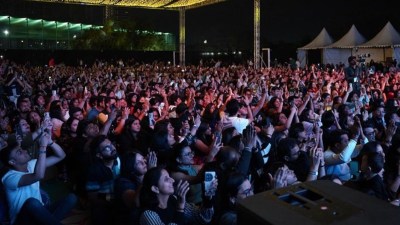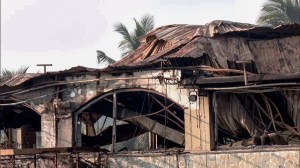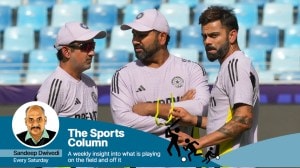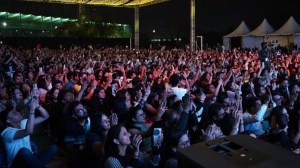Click here to follow Screen Digital on YouTube and stay updated with the latest from the world of cinema.
‘Naseeruddin Shah never said he was uncomfortable with all terrorists being Muslim in A Wednesday,’ says Neeraj Pandey: ‘He said I won’t change a word’
In an exclusive chat with SCREEN, Neeraj Pandey said Naseeruddin Shah never spoke to him about any hidden message in A Wednesday that could be seen as targeting Muslims, as has been claimed earlier by the veteran actor.
 Neeraj Pandey has directed films like A Wednesday, Special 26, Baby, and more recently, Auron Mein Kahan Dum Tha.
Neeraj Pandey has directed films like A Wednesday, Special 26, Baby, and more recently, Auron Mein Kahan Dum Tha.Neeraj Pandey seems to have really found his sweet spot with the audience. Edge-of-the-seat thrillers with a message to deliver seems to be his favourite, right from his breakout film A Wednesday with Naseeruddin Shah and Anupam Kher, to now bringing the second season of the much-loved Special Ops, featuring Kay Kay Menon in the lead. In an exclusive chat with SCREEN, Pandey opens up about the writing process of Special Ops 2, how he decides what to back as a producer, his thoughts on artificial intelligence in filmmaking, and whether his spy universe might make it to the big screen.
Excerpts, edited for clarity and brevity:
There are two stylistic elements I often associate with your work: male characters with pencil-thin moustaches and those slow, elegant lobby walk sequences in long takes. They feel almost like a nod to filmmakers like Vijay Anand or Raj Khosla. Are those conscious references?
(Laughs) No, not really. That’s totally your deduction. It’s not something I consciously do. And those are greats you’ve named in the same breath as me, and that’s not fair at all. See, whatever you do, there’s a reason behind it. So when the gang in Special 26 walks, it’s subconsciously telling the audience that there’s momentum on their side. And they’re going to raid a place where people are sitting, chilling, and are majorly static. That static space symbolizes stillness, and their movement counters that. It’s just basic cinematic vocabulary.
Actor Tahir Raj Bhasin adds a much-needed political spine to Special Ops 2. He really feels like a politically charged antagonist, he says the things the protagonist cannot. Was that intentional? Were you trying to inject a layer of commentary through him?
Yes, absolutely. That kind of subtext has always existed in my work.
More specifically here, because it’s a genre that can easily sway towards jingoism.
Yeah, because that’s not my preferred tone at all. I like narratives about people with strong beliefs doing their job silently. There’s no noise around them, they prefer being slightly low-profile, or ideally, even no-profile.
How did you go about designing Tahir’s character, especially since he’s not bound by borders and is simply a kind of businessman who happened to be on the wrong side?
See, every character in our writing process is treated with equal attention. But yes, as an antagonist, the character had to be a worthy challenge to the protagonist. As they say, the stronger the antagonist, the better the narrative.
 Neeraj Pandey reveals that he is interested in telling stories about characters who have strong beliefs about the country and go about doing their work quietly.
Neeraj Pandey reveals that he is interested in telling stories about characters who have strong beliefs about the country and go about doing their work quietly.
The show touches on themes of digital crime and artificial intelligence, which are also hot topics in the industry right now. There’s growing concern about how AI might hinder creative expression, like the recent controversy around the AI-altered ending of Raanjhanaa. What’s your perspective on AI’s role in storytelling and filmmaking?
I have no clue about this controversy. But yeah, see, it’s a tech, and it’s going to be destructive. And whenever a new tech comes, people are enamoured. So they will be awed by the tool, and what all can happen is uncertain because the possibilities are endless. Some will use it brilliantly; others might misuse it. It’s totally up to the user. But exciting times, nonetheless.
I’ve heard that you’re also setting up an AI studio?
Yeah, we are in the process of setting up an AI studio. I’m trying to understand what we can achieve with it, without harming anyone.
When you make something like MS Dhoni or Auron Mein Kahan Dum Tha, they show a very different side of you as a filmmaker. Do you see yourself exploring more of that kind of storytelling in the near future, something outside your usual thriller-espionage zone?
As a storyteller, you want to explore new stories. People love to box you into a genre, but you shouldn’t let that define you. I don’t see A Wednesday or Special 26 in a similar genre. Even Baby, which is an espionage thriller. And then there is Dhoni. So these are all very different films. The idea is always to present newer stories to audiences.
I’d love to see you do an all-out comedy.
I actually did a short film, Ouch, which was a black comedy with Manoj Bajpayee and Pooja Chopra. We had a blast making it. I’d love to do more.
What do you think went wrong with Auron Mein Kahan Dum Tha?
I don’t know what you mean by “went wrong”?
I mean purely in the commercial sense.
Yeah, the film didn’t find an audience. And there are a lot of factors for that, things which are not in your control, like the timing of the release. And moreover, I don’t measure success only by box office. For me, the important part is: Did I give it my 100%? The answer is yes. Of course, it hurts if a film doesn’t do well, but you move on.
 Neeraj Pandey opened up about the failure of Auron Mein Kahan Dum Tha.
Neeraj Pandey opened up about the failure of Auron Mein Kahan Dum Tha.
A Wednesday is a film I deeply admire. But I came across a recent interview where Naseeruddin Shah said he felt slightly uncomfortable with how all the terrorists in the film were portrayed as Muslims. He said he brought it up with you, but you disagreed.
He never said that to me while we were filming.
Oh, okay. But he said in the interview that he spoke to you about it and you said there’s nothing like that in the script.
No idea. I haven’t seen that interview. He must be promoting something. Because when he said in the past that he didn’t want to change a word about the script because he liked it so much, then saying this doesn’t make sense. But let me tell you, I have very fond memories of working with him. And we did make another film together after A Wednesday. All those memories are priceless, and I cherish them.
Any chance you two will collaborate again?
We already have.
Yeah, I know, with Aiyaary. But any plans in the future?
Yeah, we will. Why do you even ask that? Why wouldn’t we again?
 Naseeruddin Shah had previously claimed in an interview that he was bothered by the hidden bigotry in the script of A Wednesday and had confronted Neeraj Pandey about it.
Naseeruddin Shah had previously claimed in an interview that he was bothered by the hidden bigotry in the script of A Wednesday and had confronted Neeraj Pandey about it.
What’s next for you?
I’m in post-production on a couple of things and writing something new. There will be an announcement soon.
As a producer, you’ve backed some very interesting films, Toilet: Ek Prem Katha, Total Siyapaa, Naam Shabana, Rustom. What makes you say yes to a project as a producer?
The idea. If it excites me, I will back it. That’s it.
So, if a script comes with no director attached, how do you decide whether to just produce it or direct it too?
It’s intuition. If I love the material but don’t feel like the right director, I find someone else. Toilet came to me as just an idea inspired by a newspaper article. We developed it, and Shree did a great job directing it. I knew from the start I wouldn’t direct it, it’s not for me.
Lastly, with Mirzapur making the leap to the big screen, there are also reports that your spy universe might follow suit. Is that something you’re actively developing, bringing the Special Ops universe to cinemas?
Let’s see where the journey takes us. No definite plans yet, we’ll see how it goes.
- 01
- 02
- 03
- 04
- 05


































